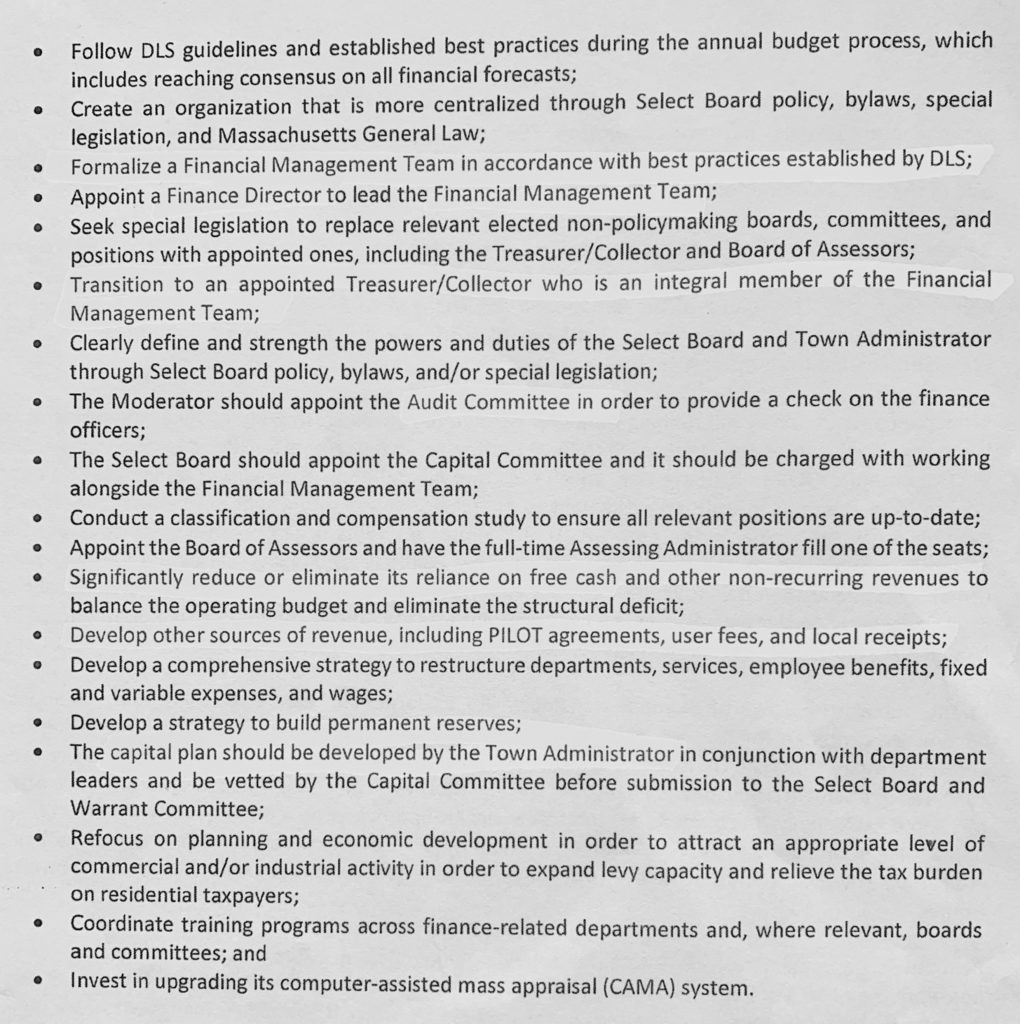Photo: A 2014 photo of Town Treasurer Floyd Carman
Floyd Carman, Belmont’s long time Treasurer, announced late Friday, Dec. 30, his decision not to seek re-election to the post in the April 2023 town election.
“I am retiring and not running for re-election on April 4, 2023, as your Elected Town Treasurer and Tax Collector after 18 years on the job,” said Carman in an email to residents. “It has been a privilege and honor to serve Belmont.”
The announcement makes official what was speculated in the fall when the Select Board’s Roy Epstein revealed that Carman would not seek a seventh three year term as the town’s leading financial official. Carman would later say in November that he would decide whether to run to keep the post “sometime in the new year.”
With Carman’s decision, the Select Board will move forward with its plan to seek Town Meeting approval to restructure the Treasurer’s position from an elected position to one which is appointed by the Town Administrator. The Board is seeking to implement one of the major recommendations proposed in a report by the Collins Center for Public Management released in August 2022. The report called Belmont “one of the most decentralized town structures of its size existing in the Commonwealth” resulting in a “significant diffusion of responsibilities and authority across the executive branch.” The Center made nearly 20 recommendations including the change to an appointed treasurer to allow a more cohesive approach to budgeting and financial management.
The Special Town Meeting will be held in February for member to vote on an article to establish an appointed treasurer post. If adopted, a ballot question will be presented to voters at the Town Election. During this time, any eligible voter can run for the open post to fill the three year term. If the voters approve the appointed treasurer post, the winner in the general election will serve until the legislature approves the voters initiative which will occur in a matter of weeks. If the voters rejects the proposal, the winner will serve the three year term.
The Select Board has come out in strong support for the appointed post as have many members of the influential Warrant Committee. Additionally, Elizabeth Dionne, the sole candidate seeking to fill the seat on the Select Board held by Adam Dash who is not running for re-election, has said she supports a appointed treasurer. Critics of the change have said there are highly qualified residents who can fill the post who will then be beholden to the voters rather than a non-elected Town Administrator.
